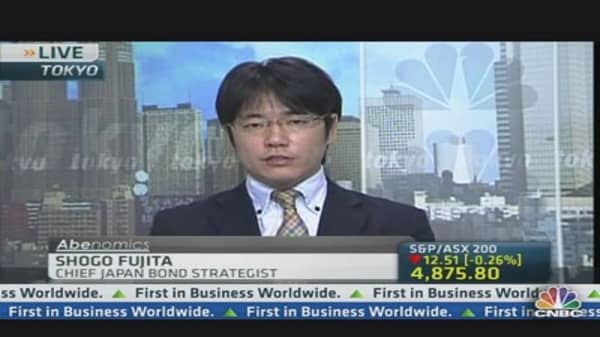Japan's radical plans to get the world's third largest economy back on track, which have created investor euphoria in recent months, seem to be losing momentum just as quickly as markets succumb to a triple whammy impact of plunging stocks, a strengthening yen and a volatile bond market.
The yen firmed against a broadly-weak dollar overnight to its highest level in almost a month, moving to the stronger side of the key 100-mark. The benchmark Nikkei on Tuesday meanwhile hit its lowest level since mid-April, extending its decline from last month's 5-1/2 year peak to about 18 percent.
(Read More: Is Another Turbulent Month in Store for Markets?)
"There's a lot of volatility domestically, including the fact that JGBs (Japanese government bonds) have been sold off aggressively in recent months," said Robert Rennie, global head of foreign exchange strategy at Westpac Bank. "The Nikkei is under pressure, Japanese investors continue to sell foreign assets and that tells us Japan's monetary policy, at least for the moment, is not working and that's a reason to be cautious."






